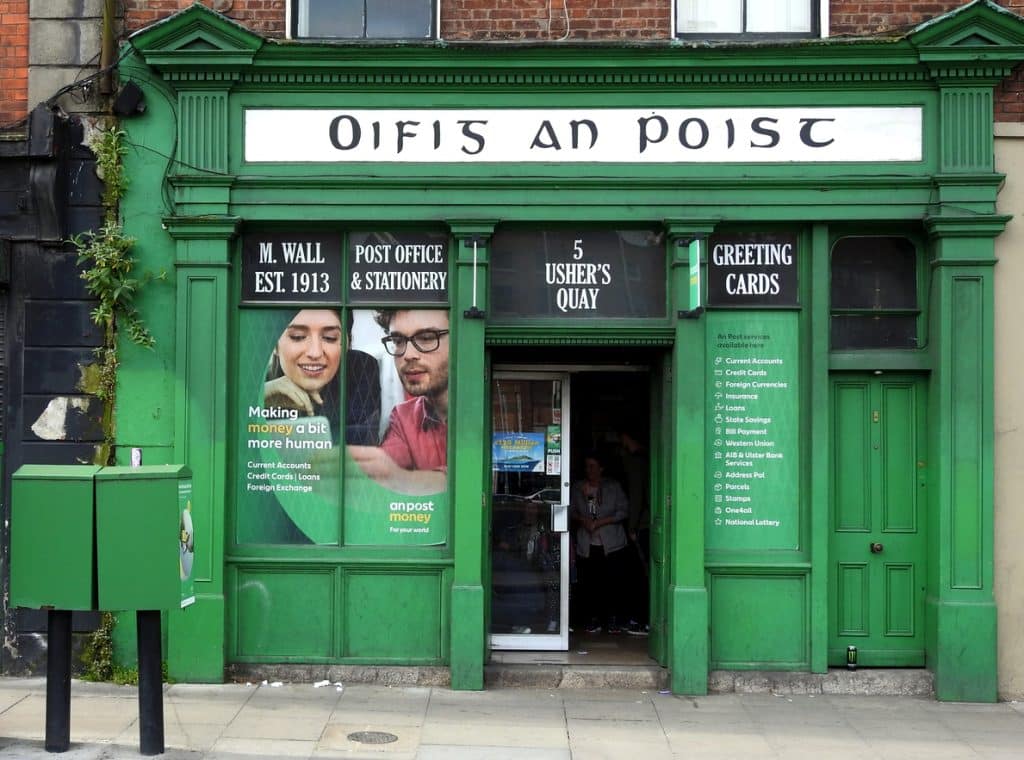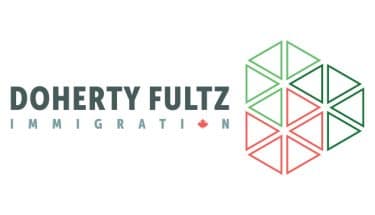Canadian Embassy in Dublin, Ireland
ADDRESS: William Beckett House, Pembroke Row, Saint Peter’s, Dublin 2, Ireland
PHONE: +353 1 234 4000
FAX: +353 1 234 4001
EMAIL: dubln@international.gc.ca
WEBSITE: https://www.international.gc.ca/country-pays/ireland-irlande/dublin.aspx?lang=eng
Visa Application Centre (VAC)
ADDRESS: 700 South Circular Road, Dublin 8, Ireland
PHONE: +353 1 906 9534
HOURS: Monday to Friday (9:00 – 17:00k) | Walk-ins: Monday to Friday (9:00 – 17:00) | Passport Collection: Monday to Friday (9:00 – 17:00)
WEBSITE: https://visa.vfsglobal.com/irl/en/can/attend-centre/dublin
WHAT TO BRING TO A VAC APPOINTMENT
When attending the appointment at the VAC, applicants need to bring hard copies of the following:
– A print out of the confirmation email with the details of the appointment (received after booking the appointment);
– A valid passport or travel documents, with at least 2 pages that are blank on both sides;
– A printout of the completed Visa Application Form (only small manual amendments to this form will be accepted at the Visa Application Centre);
– All supporting documents; and
– A printout of the receipt(s).
For the respective visa, applicants must refer to Government of Canada guidelines for the specific documents requirements.

International Mobility (IEC Working Holiday Visa to Canada)
International Mobility stream allows Irish nationals to move to Canada through The International Experience (IEC) programs. The agreement between Canada and select countries, including Ireland, allows foreign nationals to study and/or work in Canada. Applicants create a candidate profile, which is then entered in one or multiple programs or “pools”. An Invitation to Apply (ITA) is sent to candidates in “rounds” to each country / category. (The candidate profiles are removed from the pool at the end of each season). Once an ITA is received, the candidate needs to apply for the appropriate work permit.
The IEC programs that pools are created for and ITAs are extended to candidates are:
1) The Working Holiday Program
2) The Young Professionals Program
3) The International Co-op (Internship) Program
NOTE: While the International Co-op (Internship) Program is a study-based program, the Young Professional and Working Holiday programs are work-based.
NOTE: The International Co-op (Internship) Program is study-based program, rather than working-based.
1) The Working Holiday Program is available for foreign nationals between the ages of 18 and 35. The program facilitates applicants who want to travel to Canada to gain temporary employment to help pay for their trip (up to 24 months). For Irish citizens, participation in this program is only possible once and the following criteria apply:
– must be an Irish citizen;
– must have a valid Irish passport for the time in Canada;
– must between 18 and 35 (inclusive) years of age;
– must have a minimum of $2,500 (CAD) to pay for expenses while in Canada;
– must have health insurance valid throughout the time in Canada (might have to give evidence of this insurance upon entering Canada);
– must not be inadmissible to Canada;
– must have, before departure, a round-trip ticket or demonstrate having the financial resources to purchase a departure ticket at the end of the authorized time in Canada;
– must not be accompanied by dependants; and
– must have paid all applicable the fees.
For this program an Open Work Permit is required.
2) The Young Professionals Program allows post-secondary graduates to further their careers through Canadian professional work experience. Before creating a candidate profile for the pool, applicants must have a signed Offer Letter or Contract of Employment (up to 24 months) related to the applicant’s field of expertise through schooling or work experience, where the work term in Canada contributes to his or her professional development. For Irish citizens participation in this program is only possible once and the following criteria apply to applicants:
– must be an Irish citizen;
– must have a valid Irish passport for the full duration in Canada;
– must between 18 and 35 years of age;
– must have a minimum of $2,500 (CAD) to pay for expenses while in Canada;
– must have health insurance valid throughout the time in Canada (might have to give evidence of this insurance upon entering Canada);
– must not be inadmissible to Canada;
– must have, before departure, a round-trip ticket or demonstrate having the financial resources to purchase a departure ticket at the end of the authorized time in Canada;
– must not be accompanied by dependants; and
– must have paid all applicable the fees.
For this program an Employer-Specific Work Permit is required.
3) The International Co-op (Internship) Program allows applicants from Ireland to gain valuable overseas work experience related to their field of study. For more information on this Student-based stream to moving to Canada, please click here.
Work Permits for IEC Programs
Once an ITA has been received the following needs to be submitted to obtain a Work Permit. An employer-specific work permit allows the foreign national to work only for the one employer indicated on the permit, while an open work permit lets a foreign national work for various Canadian employers. (The latter is often applied for by partners of students or workers coming to Canada.) However, some jobs require a Medical Exam to be completed first. A work permit in Canada can’t be valid longer than the applicant’s passport.
To apply for a work permit, the following documents need to be provided:
1) The same documentation submitted for the IEC application;
2) Additional information about the candidate’s work history, education and background; and
3) Other supporting documents such as Proof of Financial Support, Medical Exams, Health Insurance, Police Certificates, CV/Resume, Passport, Digital Photo(s), Family Information Form (IMM5707), Electronic Travel Authorization.
Things to Keep in Mind
! If the profile of a candidate is in the Co-op Program and Working Holiday Program, an invitation will only be sent for the Co-op Program. An invitation for the Working Holiday Program would only be made if there are no more spots available for the Co-op Program.
! Since the cost of living varies depending on where one settles in Canada, applicants should inform themselves on the cost of living in each city and province / territory before applying.
! Wages must follow the labour laws in the province or territory where the work term will take place. The labour code of the province or territory will determine if an internship needs to be paid or not.
! Employment and labour law standards apply to all foreign nationals in Canada.
! The responsibility to ensure adherence to the labour standards is met, is up to the IEC candidates and their Canadian employer, who need to address inquiries to their respective provincial or territorial bodies.
! If an Irish national who is coming to study in Canada has a legal partner/spouse who they would like to bring with them for the term of the study permit, this person is eligible to apply for an Open Work Permit. However, if this person is not an Irish National he/she may also need a Visa to enter and stay in Canada.

Permanent Residency in Canada
The application for Permanent Residence runs through a process called Express Entry, where applicants obtain Comprehensive Ranking System (CRS) points based on their skills, their training, their knowledge and what they have to offer socially and economically, were they allowed to immigrate to Canada. Depending on how many points the applicant earns, the government of Canada extends an Invitation to Apply (ITA) for permanent residence to him or her.
The process has the following streams for Irish nationals to consider applying through:
- Federal Skilled Worker (FSW) Class
- Federal Skilled Trades (FST) Class
- Canadian Experience Class (CEC)
- Provincial Nomination Program (PNP)
- Family Class
1. Federal Skilled Worker (FSW) Class
This stream of the Express Entry application process assesses applicants based on their skilled work experience, English/French language abilities, education, proof of funds, admissibility and other factors (including age, existence of a job offer, and adaptability) by assigning CRS points. The goal of the point system is to determine the likeliness of applicants succeeding in their life in Canada. Based on the applicant’s ranking the government of Canada then selects the highest- ranking candidates from the pool and extends ITAs.
Irish nationals applying through this stream must provide proof that they have skilled work experience in one of the following job groups as outlined by the National Occupation Classification (NOC) system:
1) Managerial job (Skill Type “0”)
2) Professional job (Skill Level “A”)
3) Technical job and skilled trades (Skill Level “B”)
The province of Quebec has its own selection process for skilled workers. As such, the following process outline is only for applicants looking to live in provinces outside of Quebec.
Skilled Work
Applicants must show that while working in their occupation, they have performed the duties outlined in the lead statement of the NOC description for which they are applying to work in Canada, including all essential duties and most of the main duties. This experience must have been gained in a job with the same NOC code as the job the applicant is seeking upon immigrating to Canada.
The experience must have been gained within the past 10 years, through paid work (not internships or volunteer service) for at least one continuous year of employment. Both full-time or part-time periods qualify, based on the hours earned. Student work experience may also count, as long as the work was paid, was continuous and meets other requirements of the program.
Language
Applicants must take an approved language test for reading, writing, listening and speaking in either English and/or French and earn a minimum score of 7 in the Canadian Language Benchmark (CLB) in all four areas. (The results are valid for 2 years after the date of the test results and must be valid on the day of application for permanent residence)
Education
Irish nationals with credentials from countries other than Canada, must provide a diploma, degree or trade apprenticeship certificate received for the completion of study/training from a recognized institution. Along with this, an Educational Credential Assessment (ECA) for immigration purposes from a designated organization to show the education is equal to a completed certificate, diploma or degree from a Canadian secondary or post-secondary institution.
If the applicant has completed studies in Canada, a certificate, diploma or degree from the Canadian secondary or post-secondary institution must be provided.
Proof of Funds
Irish nationals applying through the Express Entry process to immigrate to Canada, must show they have enough money for themselves (and their family if joining them), to settle in Canada. This requirement is waived for individuals who are currently able to legally work in Canada or have a valid job offer from a Canada-based employer.
Admissibility
When applying for the FSW stream, you must be admissible to Canada. In other words, you must be considered healthy and safe to immigrate. The most common reason Irish nationals are found to be inadmissible to Canada is DUI (drink-driving). If you have a criminal conviction, you must have been approved for criminal rehabilitation in order to be granted PR in Canada.
Other reasons for which applicants may be denied admission to Canada may be security reasons (i.e. espionage, violence, terrorism, war crimes, previous convictions of crimes), medical reasons (i.e. health conditions that are a risks to the public or cause excessive demand on health/social services), misrepresentation (i.e. providing false information or withholding information related to government decisions) or having an inadmissible family member.
2. Federal Skilled Trades (FST) Class
This stream of the Express Entry application process assesses applicants based on their skilled work experience in the trades, English/French language abilities, education, proof of funds, admissibility and other factors (including age, existence of a job offer, and adaptability) by assigning CRS points. The goal of the point system is to determine the likeliness of applicants succeeding in their life in Canada. Based on the applicant’s ranking the government of Canada then selects the highest- ranking candidates from the pool and extends ITAs.
Irish nationals applying through this stream must provide proof that they have skilled work in the trades experience in one of the following job groups (Skill Type “B”)as outlined by the National Occupation Classification (NOC) system:
- Major Group 72, industrial, electrical and construction trades
- Major Group 73, maintenance and equipment operation trades
- Major Group 82, supervisors and technical jobs in natural resources, agriculture and related production
- Major Group 92, processing, manufacturing and utility supervisors and central control operators
- Minor Group 632, chefs and cooks
- Minor Group 633, butchers and bakers
The province of Quebec has its own selection process for skilled workers. As such, the following process outline is only for applicants looking to live in provinces outside of Quebec.
Skilled Trades Work
Applicants must show that while working in their trade, they have performed all the duties outlined in the lead statement of the NOC description for which they are applying to work in Canada, including all essential duties and most of the main duties. This experience must have been gained in a job with the same NOC code as the job the applicant is seeking to work in upon immigrating to Canada and must have been earned after qualifying to independently practise the trade.
The experience must be at least 2 years of full-time work (or an equal amount of part-time work experience) in a skilled trade within the 5 years before applying.
Language
Irish applicants applying through this stream, must take an approved language test for reading, writing, listening and speaking in either English and/or French and earn a minimum score of 5 for listening and speaking and 4 for reading and writing of the Canadian Language Benchmark (CLB). (The results are valid for 2 years after the date of the test results and must be valid on the day of application for permanent residence)
Education
For this stream there is no education requirement per se, however if an Irish national wants to improve their ranking in the Express Entry pool, there are two options to do so:
- If education was obtained in Canada, points can be earned for a certificate, diploma or degree from a Canadian secondary or post-secondary institution or
- If education was obtained abroad, points can be earned by having an Educational Credential Assessment (ECA) completed by a designated organization, showing that the education is equal to either a Canadian secondary or post-secondary institution.
Provincial/Territorial Trades Assessment
Most trades are regulated by a body that governs that trade for a province/territory. Irish Nationals will likely need to have the province/territory where they wish to live, assess the trade. Depending on the outcome of this assessment the Canadian employer may have to provide the Irish worker specific experience or training. Below is a list of links to websites with specific details for each province’s/territory’s Certificates of Qualification for the trades — as well as outlines of how these certificates can be earned. If a trade is not found under a provincial/ territorial body, the Canadian Centre for International Credentials provides a comprehensive summary of who regulates the trade: https://www.cicic.ca/935/find_an_occupational_profile.canada?search=&cat=1&tp=7.
Proof of Funds
Irish nationals applying through the Federal Skilled Trades stream to immigrate to Canada, must show they have enough money for themselves (and their family if joining them), to settle in Canada. This requirement is waived for individuals who are currently able to legally work in Canada and have a valid job offer from a Canada-based employer.
More information about financial requirements for the FST process can be found at: https://www.canada.ca/en/immigration-refugees-citizenship/services/immigrate-canada/express-entry/documents/proof-funds.html
Admissibility
When applying for the FST stream, you must be admissible to Canada. In other words, you must be considered healthy and safe to immigrate. The most common reason Irish nationals are found to be inadmissible to Canada is DUI (drink-driving). If you have a criminal conviction, you must have been approved for criminal rehabilitation in order to be granted PR in Canada.
Other reasons for which applicants may be denied admission to Canada may be security reasons (i.e. espionage, violence, terrorism, war crimes, previous convictions of crimes), medical reasons (i.e. health conditions that are a risks to the public or cause excessive demand on health/social services), misrepresentation (i.e. providing false information or withholding information related to government decisions) or having an inadmissible family member.
3. Canadian Experience Class (CEC)
This stream of the Express Entry application process assesses applicants based on their skilled work experience in Canada, English/French language abilities, education, admissibility and other factors (including age, existence of a job offer, and adaptability) by assigning CRS points. The goal of the point system is to determine the likeliness of applicants succeeding in their life in Canada. Based on the applicant’s ranking the government of Canada then selects the highest- ranking candidates from the pool and extends ITAs.
Irish nationals applying through this stream must provide proof that they have skilled work experience in Canada in one or more of the following, as outlined by the National Occupation Classification (NOC) system:
1) Managerial job (Skill Type “0”)
2) Professional job (Skill Level “A”)
3) Technical job and skilled trades (Skill Level “B”)
Skilled Work Experience
Irish nationals who apply through the CEC stream must show that while legally working in their occupation in Canada, they performed the duties outlined in the lead statement of the NOC description for which they are applying to work in Canada, including all essential duties and most of the main duties. This experience must be 1 year full-time (or equal amount in part-time) within the last 3 years before applying.
NOTE: Canadian work experience gained while studying, through self-employment or during a co-op term can not be used towards the minimum experience requirements for the CEC stream.
Language
Applicants must take an approved language test for reading, writing, listening and speaking in either English and/or French and meet the minimum language requirement in the Canadian Language Benchmark (CLB) for the profession or trade he/she intends on working in upon immigrating to Canada. The minimum requirement for NOC 0 or A jobs is level 7 and for NOC B jobs is level 5. (The results are valid for 2 years after the date of the test results and must be valid on the day of application for permanent residence)
Education
For this stream there is no education requirement per se, however if an Irish national wants to improve their ranking in the Express Entry pool, there are two options to do so:
- If education was obtained in Canada, points can be earned for a certificate, diploma or degree from a Canadian secondary or post-secondary institution or
- If education was obtained abroad, points can be earned by having an Educational Credential Assessment (ECA) completed by a designated organization, showing that the education is equal to either a Canadian secondary or post-secondary institution.
Admissibility
When applying for the CEC stream, you must be admissible to Canada. In other words, you must be considered healthy and safe to immigrate. The most common reason Irish nationals are found to be inadmissible to Canada is DUI (drink-driving). If you have a criminal conviction, you must have been approved for criminal rehabilitation in order to be granted PR in Canada.
Other reasons for which applicants may be denied admission to Canada may be security reasons (i.e. espionage, violence, terrorism, war crimes, previous convictions of crimes), medical reasons (i.e. health conditions that are a risks to the public or cause excessive demand on health/social services), misrepresentation (i.e. providing false information or withholding information related to government decisions) or having an inadmissible family member.
NOTE: Irish nationals applying through the Express Entry process to immigrate to Canada through the CEC stream are not required to show they have enough money for themselves (and their family if joining them), to settle in Canada. This requirement is waived for individuals who are currently able to legally work in Canada or have a valid job offer from a Canada-based employer.
4. Provincial Nomination Program (PNP)
This stream of the Express Entry application process assesses applicants based on their skills, education and work experience to determine how they could specifically contribute to the province or territory. To qualify to apply for the Provincial Nomination Program (PNP) stream for permanent residency, the Irish national has to first be nominated by the province or territory where he/she wishes to reside. Then the nominee is invited to submit an application for permanent residency.
To be nominated for the PNP, Irish nationals have to contact the province or territory for where they want to move to. Websites, with instructions on how to apply for the program, can be found by clicking on the links below.
NOTE: In order for each province/territory to reach their defined immigration targets (i.e., students, skilled workers, business investors, etc.), each has their own streams and, accordingly, their own requirements.
Once nominated, to apply for permanent residence through the PNP, one of the following two applications needs to be submitted, depending on the province or territory nominating the Irish national:
-
Paper based
-
Online based (Express Entry: PNP stream)
Paper Based Process
If a paper based copy permanent residence application is required by the province or territory nominating the Irish national, then the application goes via a non-Express Entry stream.
The application process for permanent residence, for provinces or territories requiring paper-based applications, is as follows:
- Complete and submit the paper application package for permanent residence (which provides an instruction guide and all necessary forms), available here: https://www.canada.ca/en/immigration-refugees-citizenship/services/application/application-forms-guides/application-package-provincial-nominees.html
- Complete and submit the medical exam, available here:
- Complete and submit a police check, available here:
- Pay application fees online (including processing fees for one self and any relative coming with the applicant, Right of Permanent Residence fee, biometric fees and applicable third-party fees)*, available here:
https://www.cic.gc.ca/english/information/fees/pay.asp
- Submit application with proof of payment of fees to ICCRC at the location indicated in the instruction guide.
Once the fees are paid and application is submitted, the applicant will receive a letter confirming the need for biometric to be given and where to go. This letter must be provided when going to give biometrics. Locations where biometrics are collected can be found at: https://www.cic.gc.ca/englis/information/where-to-give-biometrics.asp
* Other fees that may be required include educational credential assessment or language testing. The instruction guide will outline what fees apply to the applicant based on their circumstances.
Online Process
If the Irish national is interested in applying for a nomination by a province or territory that offers the PNP through the Express Entry process, there are two options for submitting an application for permanent residency:
- The Irish National contacts the province/territory and apply for a nomination through the Express Entry stream. If the province/territory provides a nomination, an Express Entry profile can be created (or existing profiles updated) to show a nomination has been made.
- The Irish National creates an Express Entry profile and shows provinces/ territories he/she is seeking to reside that nomination is sought. When a province/territory sends a “Notification of Interest” the applicant contacts that province/territory and applies to the Express Entry stream, to await a nomination to the account, which is then accepted electronically.
NOTE: For either process, Irish nationals will have to pass a medical exam and a police check, which then needs to be submitted as part of the application.
Helpful Hints
! Québec does not have a PNP. Information about their immigration streams can be found at: http://www.immigration-quebec.gouv.qc.ca/en/
! Paper-based, non-Express Entry applications have longer processing times than Express Entry online applications.
! Whichever process you apply through, you have to meet the eligibility requirement(s) of the province/territory you are applying to reside in.
! Regardless of which process you apply through, if you receive an ITA you must submit an electronic application for permanent residency to IRCC.
! When applying for the PNP stream, you must be admissible to Canada. In other words, you must be considered healthy and safe to immigrate. Reasons for which applicants may be denied admission to Canada may be security reasons (i.e. espionage, violence, terrorism, war crimes, previous convictions of crimes), medical reasons (i.e. health conditions that are a risks to the public or cause excessive demand on health/social services), misrepresentation (i.e. providing false information or withholding information related to government decisions) or having an inadmissible family member.
! Misrepresentation by not being truthful on an application may result in a refusal of the application, making the applicant inadmissible and possibly barring him/her from applying for resident status for up to 5 years.

Spousal or Common-Law Sponsorship of an Irish partner
The goal of the Family Class immigration programs is to allow family reunification. Canadian citizens, permanent residents in Canada or a person registered in Canada as an Indian under the Canadian Indian Act can sponsor a relative to come to Canada to become permanent residents (PRs).
Under the Family Class or In-Canada Class, the following relatives can be sponsored:
-
An Irish Spouse
-
An Irish Common-Law OR a Conjugal Partner – and their Dependents
-
Irish Dependent Child(ren) – and their Dependents
Should I Sponsor Using The Family Class (Overseas) or In-Canada Class?
NOTE: The sponsorship of other Irish relatives such as parents/grandparents, an adopted child, an orphaned sibling/niece/nephew/grandchild or sponsorship of a distant relative, have their own immigration programs.
Requirements For Sponsor
The person wishing to sponsor an Irish national under the Family Sponsorship class must meet the following criteria:
- 18+ years of age
- Permanent resident in Canada or Canadian citizen or Canadian citizen living outside Canada and intending to return to Canada
- Not in prison, bankrupt or under a removal order
- Not receiving social assistance (unless receiving for disability)
- Able to provide for basic needs of the person(s) being sponsored
- Themselves were not sponsored to Canada as a spouse in the last 5 years
NOTE: A sponsor must meet IRCC’s income guidelines and will be bound by law to financially support the sponsored Irish spouse (and their dependents, if applicable) as of the date the foreign national becomes a permanent resident for up to 20 years, depending on their age and how they’re related to the sponsor.
Requirements of the Irish Person Being Sponsored
To qualify for sponsorship under the Family Class, the Irish national being sponsored must prove that eligibility requirements have been met, the individual(s) being sponsored must provide proof through completion and submission of all relevant forms, documents and additional information such as medical exams and biometrics.
Further requirements, based on the kind of family application, are outlined below.
To qualify for sponsorship and applying for permanent residence as a spouse the Irish national must meet the following conditions:
- 18+ years of age
- Legally married to the sponsor
To qualify for sponsorship and applying for permanent residence, as a common-law partner (regardless of gender) the Irish national must meet the following conditions:
- 18+ years of age
- Not legally married to the sponsor
- Living with sponsor for at least 12 consecutive months (any time apart should have been temporary and a short time)
- Provide proof of common-law relationship
To qualify for sponsorship and applying for permanent residence, as a conjugal partner (regardless of gender) the Irish national must meet the following conditions:
- 18+ years of age
- Not legally married to the sponsor, nor in a common-law relationship
- Has been in a relationship with sponsor for at least 1 year
- Lives outside of Canada
- Can’t live with sponsor in their country of residence or marry the sponsor due to significant legal and immigration reasons (i.e. marital status, sexual orientation or persecution)
- Provide proof that s/he could not live together such as refusals of long-term stays in each other’s country.
To qualify for sponsorship and applying for permanent residence, an Irish dependent child must meet the following conditions:
- Under 22 years of age and
- Don’t have a spouse or common-law partner
- The other parent must agree to the child immigrating to Canada
The dependent child may be the either sponsor’s own child(ren) or the child(ren) of the Irish spouse/partner being sponsored. If this child has a child or children of their own (the sponsor’s grandchild(ren)), they are also eligible to be included in the sponsorship so long as the other parent/legal guardian agrees to the immigration to Canada.
NOTE: Children over 22 years of age may qualify as dependents if they meet both of the following requirements: unable to financially support themselves due to a mental or physical condition and have depended on their parents for financial support since before the age of 22. Except for the age, these conditions must be met until the application has been approved.
There are two options for sponsorship for permanent residence (PR) status:
-
Family Class (Overseas/Out-Land)
Which path to pursue depends on your family situation and how you are prepared to spend the next year of processing time. Find out more about how to choose between In-Canada and Overseas sponsorship here.
NOTE: For both paths there is a two-step process, requiring that the Sponsor first apply to sponsor a relative, followed by the Family Member applying for permanent residence. You must submit the Sponsorship application together with the application for Permanent Residency.
1) Inland Sponsorship (In-Canada Class)
Applications for sponsorship can be submitted if the Irish national being sponsored is already in Canada (as visitors, students or workers), with valid temporary resident status as a visitor, a student or a worker. This process is called In-Land Sponsorship.
The process consists of the following:
- Obtain and complete the sponsorship application package, including all forms (for sponsor and Irish national being sponsored) and required documents. If you have lived, studied and/or worked outside of Ireland, you may need to obtain documents/records from those other countries to fulfill the requirements of the application. Examples of such records/documents are:
- passport(s)
- birth certificate(s)
- marriage/divorce certificate(s)
- national identification card(s)
- military service document(s)
- other civil document(s)
- etc.)
- Pay application fees, including processing fees for the Sponsor and all persons being sponsored, the Right of Permanent Residence fee, Biometrics fee and any applicable Third-Party fees (i.e. Medical Exam & Police Certificate).
- Submit the application to the address provided in the Instruction Guide.
- Send any further documentation to IRCC, if they request it.
- Attend an interview with IRCC as part of the assessment for eligibility for PR status. The Irish national will be notified thereof in writing and will need to bring with them all supporting documents for the application.
The In-Land sponsorship application path may allow the Irish national to work or study in Canada while the sponsorship application is being processed, mitigating financial and social strains. However, if the sponsorship application is refused the Irish national must leave Canada at the end of the permitted temporary stay.
NOTE: If the person being sponsored leaves Canada at any given point while the application is being processed, there is no guarantee that s/he will be allowed to re-enter Canada.
2) Overseas Family Class Sponsorship (aka Outland Sponsorship)
Many family sponsorship applications are done for Irish nationals who reside outside of Canada. Depending on the circumstances, the person being sponsored might be permitted to travel in and out of Canada while the sponsorship application is being processed. This remains at the discretion of the IRCC official. However, there is also the possibility of applying through this path, even if the Irish national is already living in Canada.
The Out-Land applications must be submitted to the visa office where the person being sponsored is originally from (Ireland) or where s/he has resided legally for at least one year.
- Obtain and complete the sponsorship application package, including all forms (for sponsor and Irish national being sponsored) and required documents. If you have lived, studied and/or worked outside of Ireland, you may need to obtain documents/records from those other countries to fulfill the requirements of the application. Examples of such records/documents are:
- passport(s)
- birth certificate(s)
- marriage/divorce certificate(s)
- national identification card(s)
- military service document(s)
- other civil document(s)
- etc.)
- Pay application fees, including processing fees for the Sponsor and all persons being sponsored, the Right of Permanent Residence fee, Biometrics fee and any applicable Third-Party fees (i.e. Medical Exam & Police Certificate).
- Submit the application to the Visa Application Centre (VAC) in the country where the Irish national is living (usually Ireland) or the VAC that is dedicated to the area.
- Send any further documentation to the VAC as requested. This may include further documentation/records to complete the application, biometrics (fingerprints and photos) and completion of a medical exam.
- The Irish national being sponsored must attend an interview with IRCC as part of the assessment for eligibility for PR status. AFter IRCC has received the sponsorship/PR applications, the Irish national will be notified in writing that s/he needs to attend and must bring with them all supporting records and documents for the application.
Biometrics
As part of the application process for permanent residency, all Irish nationals must provide biometric information in the form of fingerprints and a photo.
NOTE: While the fee for biometrics must be paid before sending the application (receipt to be included in the application package), the submission of the biometrics themselves must be completed once IRCC has received the combined sponsorship/PR applications and then provides the Irish national with an Instruction Letter.
Medical Exam(s)
The Irish national(s) being sponsored to come to Canada and seeking Permanent Resident status, must complete a medical exam as part of the application process. IRCC, upon reviewing the application, will advise applicants when it is time to go get the exam done.
Police Certificate(s)
As part of the application and requirement for admissibility to Canada, Irish national(s) being sponsored to come to Canada and seeking PR status, must provide a police certificate from Ireland, showing they do not have a criminal record.
To learn how to obtain a police certificate from Ireland, you can go to:
To learn how to obtain a police certificate from Northern Ireland, you can go to:
NOTE: If you have resided, studied and/or worked in a country other than Ireland you may have to provide police certificates from those other countries. Consult the Instruction Guide for details.
Other Relative Sponsorship Programs
IRCC has created special sponsorship programs for:
-
Parent(s)/grandparent(s)
-
Adopted child(ren)
-
Orphaned sibling(s)/niece(s)/nephew(s)/grandchild(ren)
-
Other Relatives
To learn more about the adopted child(ren) Sponsorship options you can go to:
To learn more about sponsoring other relatives such as an orphaned sibling/ niece/nephew/grandchild you can go to:
Other Irish relatives (such as an aunt, uncle or cousin) and that person’s dependents might be eligible for sponsorship if a permanent resident or Canadian citizen
- does not have a living relative who is a Canadian citizen or permanent resident or registered Indian under the indian act
and
- does not have someone to sponsor as a spouse/common-law/ conjugal partner/dependent child, from the list above.
To learn more about sponsoring other relatives, you can go to:
Helpful Hints
! For spousal sponsorships, IRCC is committed to processing applications as quickly as possible to allow family reunification within 12 months. (Other applications vary depending on the country of origin of the person being sponsored).
! Misrepresentation by not being truthful on an application may result in a refusal of the application, making the applicant inadmissible and possibly barring him/her from applying for resident status for up to 5 years.
! If an Irish national who is coming to work in Canada has a legal partner/spouse who they would like to bring with them for the term of the work/study permit, this person is eligible to apply for an Open Work Permit. However, if this person is not an Irish National he/she may also need a Visa to enter and stay in Canada.

Moving to Canada from Ireland as a Student
There are two paths for Irish nationals to move to Canada as a student. Either via a Designated Learning Institution (DLI) or through the one of the International Experience Canada programs, namely the International Co-op (Internship) Program.
While Irish citizens are exempt from requiring a Visa to enter and stay in Canada, they do require an Electronic Travel Authorization (ETA) which must be purchased online, before arriving at the border. However, an Irish national between the ages 14 to 79, wanting to study in Canada for longer than 6 months, a Study Permit (with biometric data) will be required. A Study Permit is usually valid for the length of the study program, plus an extra 90 days, to allow students to apply for an extension or to prepare to leave Canada.
Studying at a Designated Learning Institution (DLI)
To be eligible to study at a Designated Learning Institution in Canada, Irish applicants must meet the following requirement:
– must be enrolled at a DLI in Canada;
– must prove possession of enough money to pay for tuition fees, living expenses for self and any family members who will accompany student to Canada and return transportation for self family members who accompany student to Canada;
– must be willing to obey Canadian laws;
– must not have criminal record;
– must be able to provide a police certificate (if required);
– must be in good health and get a medical exam (if required); and
– must be able to prove to an officer the willingness to leave at the end of the allowed study term in Canada.
To apply for a Study Permit the following documents are required in English or French, along with a certified translation if the original is not in either language:
1) Proof of Acceptance – the school must provide a Letter of Acceptance (hard copy or electronic) that is submitted with the Study Permit application.
2) Proof of Identity – a Passport or Travel Document needs to be provided (electronic copy of the information page) for each person joining the student in Canada, as well as 2 photos of each person with their name and Date of Birth on the back.
3) Proof of Financial Support – evidence must be provided for financial independence for the Student and those accompanying, while in Canada studying.
4) Letter of Explanation – a letter, providing an outline of why Canada is the country of choice for the study program, must be submitted as well as demonstration that the applicant understands his / her responsibilities while in Canada.
5) A Certificat d’acceptation du Québec (CAQ) – this document, which the school can assist with, is required if the applicant wishes to study in Québec.
6) A Custodian Declaration is required if the student is a minor (under 18 years of age).
If an Irish national is applying for an extension of Study Permit they may or may not need to provide updated biometrics information. If biometrics have previously been submitted the data may still be valid. Check the status tool at: https://onlineservices-servicesenligne.cic.gc.ca/extapp/termsAndConditions?&lang=en
* Biometrics need to be provided at Visa Application Centres (VACs) worldwide at an Application Support Centers (ASCs) in the United States and its territories or at a designated Service Canada Office (SCOs). Appointments need to be made at a location near the applicant and fees paid before the appointment. Applicants have 90 days from the date of the letter to submit their biometrics.
NOTE: A few days before the appointment, applicants should check if the respective office is open in case of extenuating circumstances.
The following Office Specific documents are also needed, when applying from Ireland:
1) Proof of current employment or studies – a letter on letterhead from the employer or school, outlining either the position/salary or the program of study.
2) Evidence of previous study or travel – evidence of completion of previous related studies or international studies/travel.
3) Proof of income and funds – evidence to show financial resources (i.e. income, assets, funds, etc.) and those of any individual providing financial assistance.
4) Family Information Form IMM5707.
5) Copy of Current Immigration Form – if renewing a permit then a copy of the current ETA, Study/Work Permit and/or Permanent Residence Permit need to be provided.
6) Evidence for purpose of studies – outline of CV or resume to show why studies in Canada are sought.
7) Schedule 1 (IMM5257B) will need to be completed if any of the background questions on the Application were answered with “yes”.
Further details are available at: https://www.cic.gc.ca/english/information/applications/student.asp?countrySelect=IE#applications
Helpful Hints
! If an Irish national who is coming to work in Canada has a legal partner/spouse who they would like to bring with them for the term of the work/study permit, this person is eligible to apply for a Spousal Open Work Permit. However, if this person is not an Irish National he/she may also need a Visa to enter and stay in Canada.



